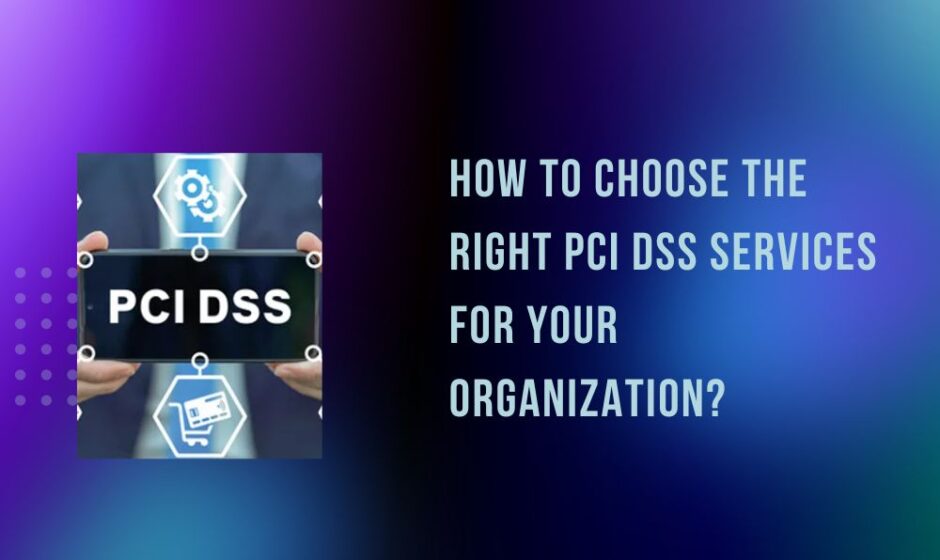The Payment Card Industry Data Security Standard (PCI DSS) sets the framework for organizations to ensure this security. Whether you’re a small business owner or a manager at a large corporation, understanding and implementing PCI DSS is crucial. However, navigating the complexities of PCI DSS can be challenging, and choosing the right service provider to help you comply is a critical decision. In this blog, we will explore how to choose the right PCI DSS services for your organization, ensuring your customer’s payment information is secure and your business is compliant.
Understanding PCI DSS
What Is PCI DSS?
PCI DSS stands for Payment Card Industry Data Security Standard. It is a set of security standards designed to ensure that all companies that accept, process, store, or transmit credit card information maintain a secure environment. Essentially, it is a guideline to help prevent credit card fraud, hacking, and various other security vulnerabilities and threats.
Why Is PCI DSS Important?
Compliance with PCI DSS is not just about avoiding fines; it’s crucial for protecting your customers and your business from the significant risks associated with payment card breaches. It helps build trust with your customers, ensuring that their sensitive payment card information is kept secure throughout every transaction.
Assessing Your PCI DSS Needs
Determining Your Merchant Level
The first step in choosing the right PCI DSS services is understanding your merchant level, which varies based on the volume of transactions your business processes annually:
- Level 1: Over 6 million transactions per year
- Level 2: 1 to 6 million transactions per year
- Level 3: 20,000 to 1 million transactions per year
- Level 4: Fewer than 20,000 transactions per year
Each level has different compliance requirements; knowing where your organization falls will help determine the scope and depth of services you need.
Understanding Your Compliance Requirements
Different businesses have different needs based on their specific processes for handling payment card information. Whether your organization handles payments directly, uses third-party vendors, operates online, or has a physical point-of-sale will influence the kind of PCI DSS services you require.
Choosing the Right PCI DSS Services
1. Evaluate Service Scope and Specialization
Look for Comprehensive Services
Choose a service provider that offers a comprehensive range of PCI DSS services. This should include risk assessments, gap analyses, remediation support, and regular compliance checks. Providers that offer end-to-end services can guide you through the initial assessment to ongoing compliance management.
Check for Industry Specialization
Some service providers specialize in specific industries, such as retail, healthcare, or finance, which may have unique risks and requirements. A provider with experience in your industry can offer insights and solutions that are more tailored to your specific needs.
2. Consider the Provider’s Expertise and Reputation
Check for Certifications
Ensure that the service provider has relevant qualifications and certifications. Certified PCI DSS Qualified Security Assessors (QSAs) are professionals who are qualified to assess compliance with PCI DSS standards. Their expertise can be invaluable in navigating the complex requirements of PCI DSS.
Research Their Reputation
Look for reviews, testimonials, and case studies from other clients, especially those in your industry. A reputable provider should have a track record of helping organizations achieve and maintain compliance. They should also be known for their integrity and transparency.
3. Analyze Their Approach to Compliance
Customized Solutions
Each business is unique, and a one-size-fits-all approach doesn’t work for PCI DSS compliance. The right service provider should offer customized solutions that fit the specific needs of your business. They should be willing to understand your processes and provide personalized guidance.
Proactive Strategy
Choose a provider that takes a proactive approach to compliance. This includes regular updates on regulatory changes, ongoing risk assessments, and continuous improvements to security measures. A proactive provider can help you stay ahead of potential vulnerabilities and ensure you remain compliant over time.
4. Assess Technology and Tools Used

State-of-the-Art Technology
The technology and tools the service provider uses should be up-to-date and effective. This includes software for monitoring and reporting, encryption technologies, and other security measures that help protect sensitive payment card data.
Integration Capabilities
The provider’s solutions should easily integrate with your existing systems. Seamless integration reduces disruptions to your operations and helps maintain business continuity as you implement necessary security measures.
5. Review Support and Customer Service
Availability
Choose a provider that offers reliable, around-the-clock support. You should be able to contact them easily whenever you need assistance or have questions about your PCI DSS compliance status.
Quality of Support
Consider the quality of customer service they provide. Good customer service is indicative of how well a provider will respond to your needs and how effectively they will handle any issues that arise during the compliance process.
Conclusion
Choosing the right PCI DSS service provider is a crucial decision that can significantly impact the security of your customer’s payment card data and the compliance status of your business. By considering the scope of services, provider expertise, compliance approach, technological capabilities, and customer support, you can select a PCI DSS service that meets your specific needs and helps you maintain robust security standards. Remember, the goal is to protect not just your customers’ data but also your business’s reputation and trustworthiness in a competitive market.
Note:- For read more articles visit on fastpanda.



